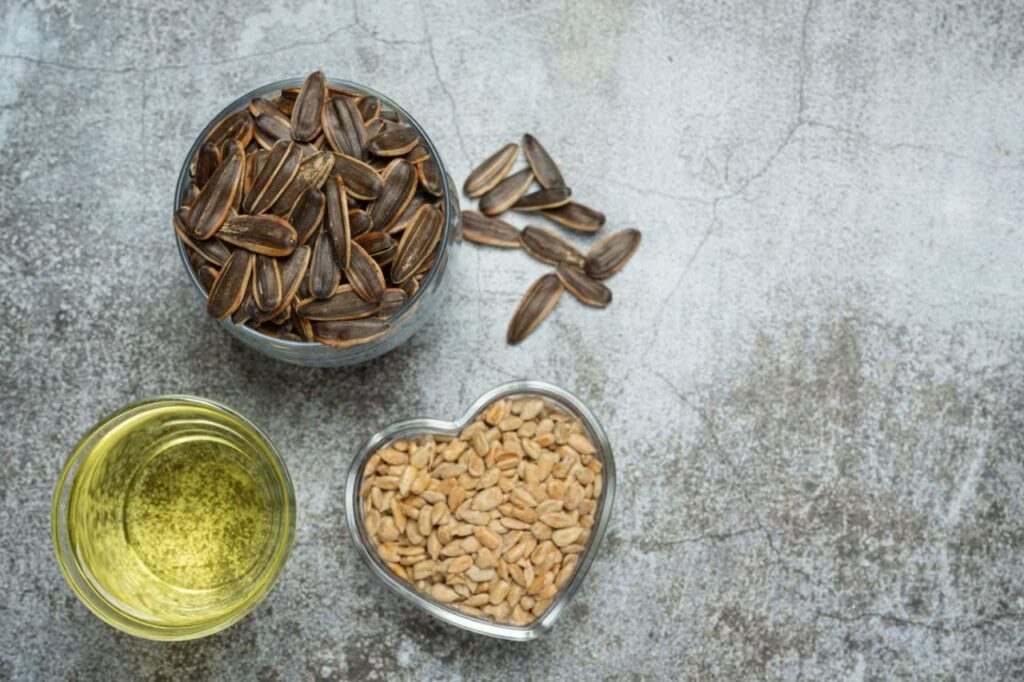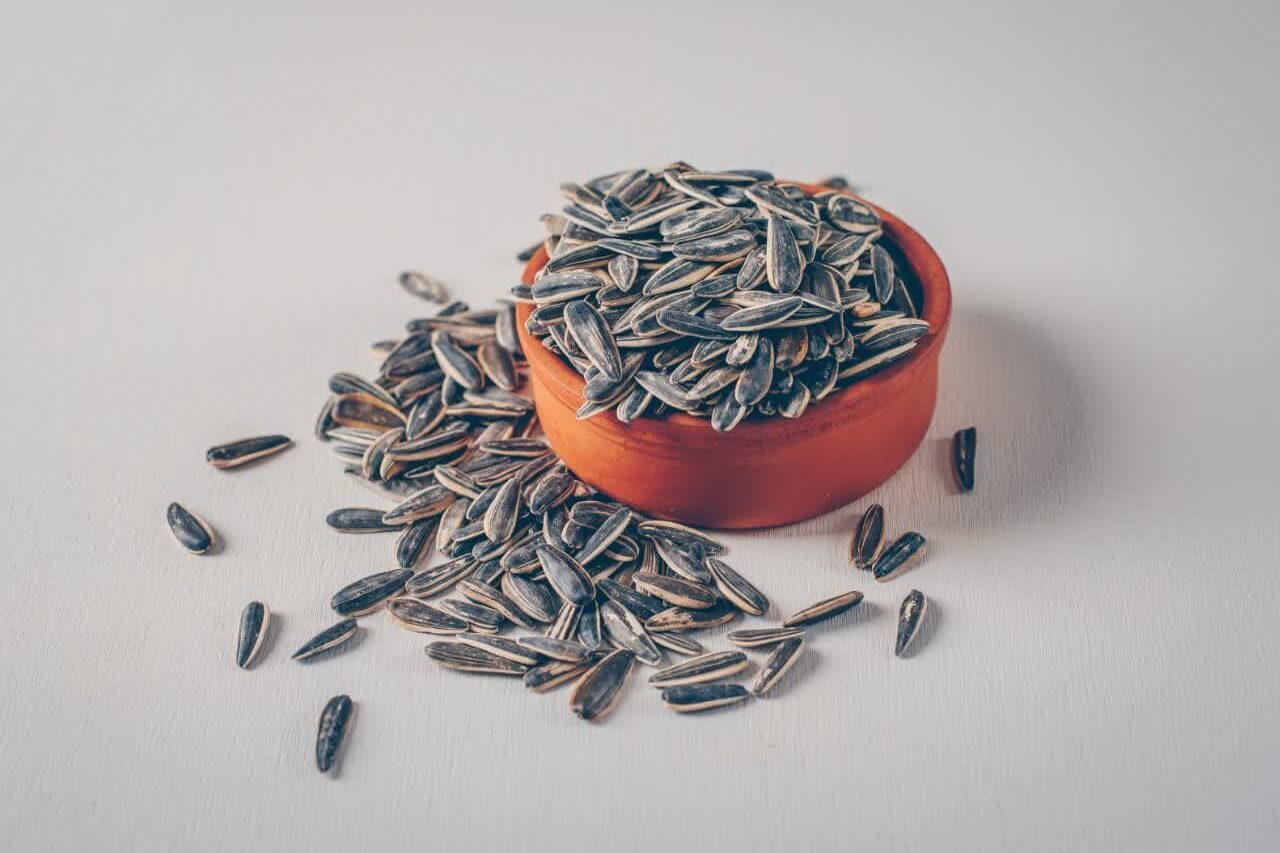Sunflower seeds are tiny powerhouses of nutrition and flavor, making them one of the most popular snacks around the world. These seeds are harvested from the head of the sunflower plant (*Helianthus annuus*) and have been a dietary staple in various cultures for centuries. Whether enjoyed as a quick snack, a salad topping, or incorporated into baked goods, sunflower seeds offer an impressive range of health benefits, making them a valuable addition to any diet.
Nutritional Profile of Sunflower Seeds
Sunflower seeds are rich in essential nutrients, including healthy fats, proteins, vitamins, and minerals. A typical serving of sunflower seeds (about 28 grams or 1 ounce) contains:
– Healthy fats: Sunflower seeds are high in monounsaturated and polyunsaturated fats, which support heart health by reducing bad cholesterol levels.
– Protein: With around 5-6 grams of protein per serving, sunflower seeds are an excellent plant-based protein source.
– Fiber: These seeds provide about 2 grams of dietary fiber, aiding in digestion and promoting a healthy gut.
– Vitamin E: One of the standout nutrients in sunflower seeds is vitamin E, a powerful antioxidant that helps protect the body’s cells from damage caused by free radicals.
– B vitamins: They are also rich in B vitamins, such as thiamine, niacin, and folate, which play key roles in energy metabolism and brain function.
– Minerals: Sunflower seeds are a great source of magnesium, selenium, copper, and phosphorus, all of which contribute to various bodily functions, including bone health and immune support.
Health Benefits of Sunflower Seeds
1. Promotes Heart Health
The high levels of healthy fats, particularly polyunsaturated fats, in sunflower seeds are known to promote cardiovascular health. Additionally, magnesium helps regulate blood pressure, while the antioxidant properties of vitamin E reduce inflammation in blood vessels, lowering the risk of heart disease.
2. Boosts Immune System
Sunflower seeds are packed with zinc and selenium, two crucial minerals that strengthen the immune system. Selenium also plays a role in reducing oxidative stress and inflammation, thereby protecting the body from chronic illnesses.
3. Supports Weight Management
Despite being calorie-dense, sunflower seeds can aid in weight management. The combination of protein, healthy fats, and fiber helps keep you full longer, reducing overall calorie intake throughout the day.
4. Improves Skin Health
Vitamin E, found abundantly in sunflower seeds, is known for its skin-rejuvenating properties. It helps in maintaining the skin’s elasticity and hydration, making it look healthier and more youthful. The anti-inflammatory properties of the seeds may also help manage skin conditions such as acne and eczema.
5. Enhances Bone Strength
Sunflower seeds are rich in magnesium, phosphorus, and copper, all of which are vital for maintaining bone density and preventing bone-related disorders. Magnesium plays a key role in activating vitamin D, which is necessary for calcium absorption.
6. Reduces Inflammation
Chronic inflammation can lead to various diseases, including diabetes and arthritis. The antioxidants in sunflower seeds, along with healthy fats and plant compounds, help reduce inflammation in the body.

Ways to Incorporate Sunflower Seeds into Your Diet
There are countless ways to enjoy sunflower seeds. Here are a few ideas:
– As a snack: Roasted and salted sunflower seeds make a tasty and satisfying snack on their own.
– In salads: Sprinkle sunflower seeds over your favorite salad for a crunchy texture and added nutrition.
– In baking: Add sunflower seeds to bread, muffins, and cookies for an extra nutritional boost.
– As a topping: Use sunflower seeds as a topping for oatmeal, yogurt, or smoothie bowls.
– Sunflower seed butter: Similar to peanut or almond butter, sunflower seed butter is a delicious spread for toast or crackers.
Sunflower Seeds and Sustainability
In addition to their health benefits, sunflower seeds are a sustainable crop. Sunflowers are hardy plants that can grow in various climates and require minimal water compared to other crops. This makes sunflower seeds an eco-friendly choice for those looking to reduce their environmental impact.
Potential Precautions
While sunflower seeds offer numerous health benefits, it’s important to consume them in moderation. They are calorie-dense, so overeating can lead to unwanted weight gain. Additionally, many commercially available sunflower seeds are salted, which can increase sodium intake. To minimize this, opt for unsalted or lightly salted varieties.
Conclusion
Sunflower seeds are more than just a tasty snack—they are a nutrient-rich superfood that can support overall health in a variety of ways. Whether you’re looking to improve heart health, boost your immune system, or simply enjoy a delicious and healthy treat, sunflower seeds are an excellent choice. With their versatility, ease of use, and impressive nutritional profile, they are a perfect addition to any balanced diet.
So the next time you’re looking for a healthy snack, reach for a handful of sunflower seeds and enjoy both their crunch and their wide-ranging health benefits!

